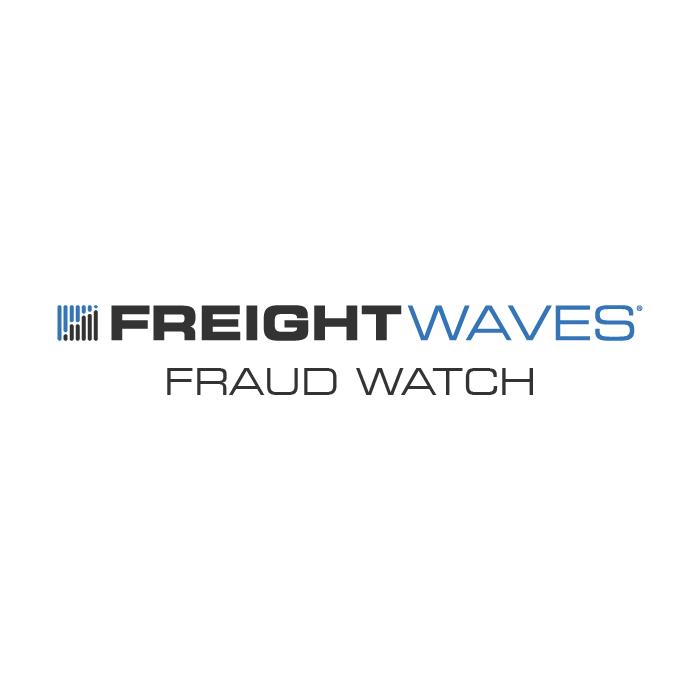Truckstop and Prax team up on load board fraud protection
|
|
|
|
|
Freight fraud prevention starts with Truckstop.com. Secure Carriers and Brokers and proceed with confidence. Truckstop.com uses the most advanced security technology to keep fraud out of your business. Learn More!
|
|
|
(Photo: Jim Allen / FreightWaves)
|
|
|
Cargo Theft: A $6.6 Billion Drain on the Trucking Industry
|
|
|
The American Transportation Research Institute (ATRI) has issued a stark warning in its latest report, "The Fight Against Cargo Theft: Insights from the Trucking Industry," revealing that cargo theft now costs the U.S. trucking and logistics sector up to $6.6 billion annually—roughly $18 million per day. What began as straightforward trailer heists has evolved into a sophisticated web of digital crimes, including fraudulent load postings, identity theft, and double-brokering scams. These "strategic thefts" have surged from just 2% of incidents in 2018 to 25% in 2023, making them as pervasive and costly as physical thefts.
ATRI’s survey of 95 motor carriers and 28 logistics providers paints a troubling picture. Two-thirds of carriers reported at least one theft in recent years, with 43% hit in 2023 alone. For motor carriers, pilferage—partial-load thefts—dominates, often occurring at terminals, truck stops, or overnight parking lots. Logistics firms, however, face the brunt at customer pickup sites, where fake bookings exploit online platforms. High-risk hotspots include California, Illinois, Texas, Georgia, Florida, and Tennessee, with New Jersey and Illinois topping per-freight-volume rates.
Targeted commodities underscore the thieves’ pragmatism: food and beverages lead, prized for their traceability challenges, quick spoilage, and underreporting to insurers. Electronics, auto parts, and retail goods follow closely. CargoNet’s 2023 data logs nearly 2,900 incidents totaling $332 million, averaging $116,000 per theft. ATRI’s figures show motor carriers losing about $520,000 yearly on average, while logistics providers bleed $1.84 million.
The ripple effects extend far beyond stolen pallets. Disrupted schedules sideline drivers and equipment, erode customer trust, and inflate insurance premiums—which have nearly doubled per mile since 2008. Some carriers quietly absorb minor hits to dodge rate hikes, but larger losses force geofencing mandates, tamper-proof seals, and facility audits from wary insurers. As Ben Banks, president of TCW, Inc., laments, "cargo theft has become a standard cost of doing business," ultimately passed to consumers through higher prices and fragile supply chains.
ATRI urges a cultural shift toward security, endorsing Transported Asset Protection Association (TAPA) standards for vetting drivers, controlling access, and bolstering cybersecurity. On the policy front, it advocates a federal clearinghouse for theft data to unify fragmented enforcement, building on state-level crackdowns in California and Texas. Without bolder action, this "normalized" epidemic threatens the industry’s resilience, turning every load into a potential liability.
|
|
|
Freight Fraud Video of the Week 🤩
|
|
|
In this powerful episode of The Long Haul, host Adam Wingfield sits down with Annique Lesage, the freight-savvy broker and coach known for her direct, no-fluff truth bombs on TikTok.
|
|
|
Truckstop partners with Prax to combat freight fraud
|
Truckstop’s load board. (Photo: Truckstop.com)
|
|
|
Truckstop, a leading freight marketplace, has partnered with Prax, a fraud prevention technology firm, to tackle the escalating issue of freight fraud in the trucking industry, as announced on October 8, 2025. The collaboration integrates Prax’s advanced fraud detection technology into Truckstop’s load board platform, aiming to enhance security for carriers, brokers, and shippers. This move addresses a surge in fraudulent activities, such as double brokering and identity theft, which have cost the industry billions annually.
Prax’s technology leverages artificial intelligence and machine learning to analyze real-time data, identifying suspicious patterns like falsified documents or unauthorized load bookings. By embedding these tools into Truckstop’s platform, users gain access to real-time fraud alerts, identity verification, and risk assessment features. This allows carriers to vet brokers and loads more effectively, while brokers can ensure they’re working with legitimate carriers. The system flags high-risk activities, such as multiple load postings under different identities, helping prevent scams before they occur.
The partnership comes at a critical time, as freight fraud has spiked, with estimates suggesting losses of $500 million to $700 million annually. Double brokering—where a load is illegally reassigned without the shipper’s knowledge—has become a prevalent issue, often facilitated by fake carrier profiles on load boards. Truckstop’s chief relationship officer, Brent Hutto, emphasized that this collaboration empowers users to make informed decisions, enhancing trust across the supply chain. Prax’s CEO, Brandon Dewitt, highlighted the technology’s ability to evolve with fraudsters’ tactics, ensuring long-term protection.
Beyond technology, Truckstop is expanding its fraud prevention team and introducing new policies to deter bad actors. The company has already seen success with its RMIS carrier onboarding platform, which includes robust vetting processes. The Prax integration builds on this, offering a seamless user experience without requiring additional software. Industry leaders like Ryan Schreiber of Metafora praised the partnership as a vital step toward securing freight marketplaces, predicting it will set a new standard for fraud prevention.
The initiative also aligns with broader industry efforts, such as the American Transportation Research Institute’s call for stronger cybersecurity and federal data-sharing to combat cargo theft and fraud. By combining Prax’s cutting-edge technology with Truckstop’s extensive network, the partnership aims to reduce financial losses, protect supply chain integrity, and foster a safer, more reliable freight ecosystem for all stakeholders.
|
|
|
|
![]()

![]()